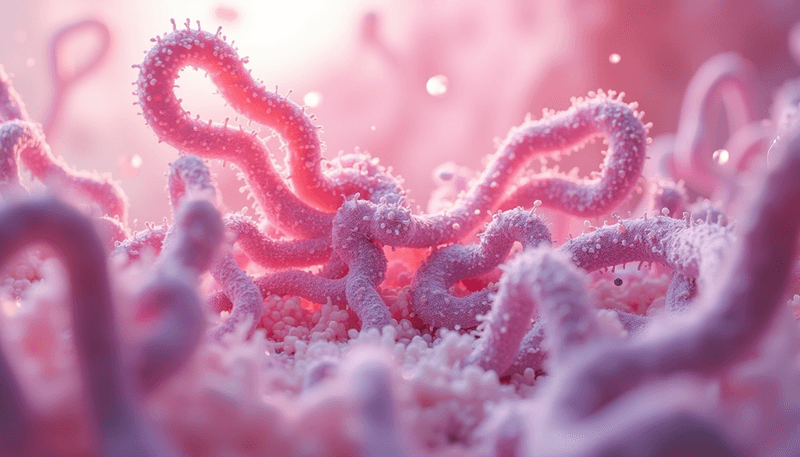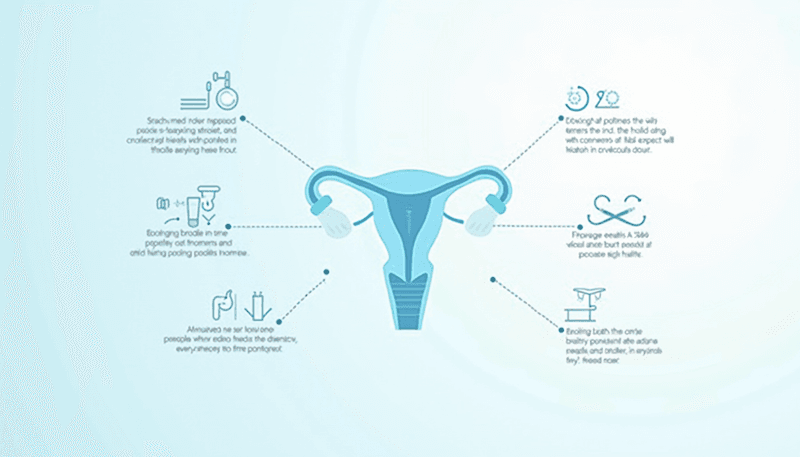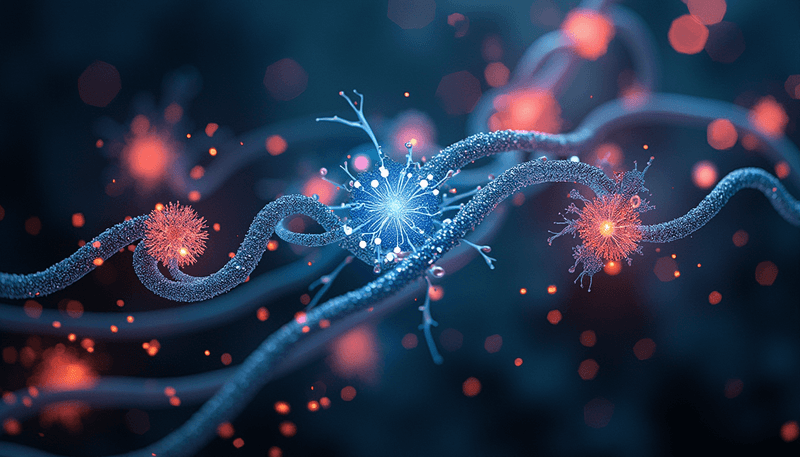Menopause Changes Your Body's Hidden Friends

Did you know that trillions of tiny microorganisms living in and on your body play a vital role in your health? These microscopic companions, collectively known as your microbiome, undergo significant changes during menopause. A groundbreaking review published in Diagnostics reveals how these changes affect women's health during menopause, particularly in the gut and genitourinary system.
The Gut-Brain Connection in Menopause
Your gut microbiome isn't just about digestion - it's a complex ecosystem that influences everything from your mood to your bone health. During menopause, the composition of gut bacteria shifts significantly. Studies show increased levels of bacteria that produce short-chain fatty acids (SCFAs) and hydrogen sulfide.
Have you ever noticed changes in your digestion or mood during menopause? Your gut bacteria might be playing a bigger role than you think.
What does this mean for you? These changes can have both positive and negative effects:
-
Positive Effects:
- Enhanced fatty acid metabolism
- Better energy utilization
- Improved serotonin production
- Stronger bones through increased growth factors
-
Negative Effects:
- Potential inflammation
- Possible insulin resistance
- Risk of bone density issues
Practical Tip: Support your gut health by incorporating fermented foods like yogurt, kimchi, or sauerkraut into your daily diet. These foods help maintain beneficial bacteria populations.
Your Vaginal Ecosystem: A Delicate Balance
The vaginal microbiome undergoes perhaps the most dramatic changes during menopause. Think of it as a garden where certain beneficial plants (in this case, Lactobacillus bacteria) typically flourish. During menopause, reduced estrogen levels change the soil conditions of this garden, making it harder for these beneficial bacteria to thrive.
Key Changes:
- Decreased Lactobacillus populations
- Increased pH levels
- Greater diversity of bacteria (not always a good thing in this case)
- Higher risk of infections
What You Can Do:
- Discuss local estrogen therapy with your healthcare provider
- Consider probiotic supplements specifically designed for vaginal health
- Maintain proper hygiene without over-cleaning
- Stay hydrated and maintain a healthy diet
Understanding Urinary Health Changes
One of the most significant findings from the research concerns urinary tract health. After menopause, women often experience more frequent urinary issues, and the microbiome plays a crucial role in this change.
Did you know that the bacteria in your urinary tract can actually protect you from infections when they're in the right balance?
Important Findings:
- Postmenopausal women show higher diversity in urinary bacteria
- Lactobacillus levels decrease from 77.8% to 42.0% after menopause
- These changes often precede urinary tract infections
Prevention Strategies:
- Stay well-hydrated with clean water
- Empty your bladder completely when urinating
- Maintain good intimate hygiene
- Consider combination therapy of probiotics and local estrogen (discuss with your healthcare provider)
The research reveals that these three systems - gut, vaginal, and urinary - are interconnected. Changes in one area can affect the others, creating a domino effect. This understanding opens new possibilities for managing menopausal symptoms through targeted approaches to maintain healthy bacterial communities.
"Think of your body's microbiome as a complex ecosystem - like a rainforest. Each species plays its part in maintaining balance and health."
Take Action Today: Start with one small change - perhaps adding a probiotic-rich food to your daily routine or increasing your water intake. Monitor how your body responds and gradually incorporate other strategies. Your microscopic friends will thank you, and you'll likely notice improvements in your overall well-being.
Remember, while menopause brings changes to your body's bacterial communities, you have the power to support and maintain these vital ecosystems. Working with your healthcare provider to develop a personalized approach can help you navigate these changes successfully.

Dr. Marcus Anthony Bennett
Dr. Marcus Bennett is a Seattle-based freelance medical writer and consultant specializing in mid-aged women's health. With a background in internal medicine and over a decade of experience in preventive care, he is dedicated to making complex health topics accessible. Dr. Bennett completed his MD at Johns Hopkins School of Medicine and residency at the University of Washington. His empathetic and evidence-based approach combines traditional medical expertise with a focus on health disparities, often incorporating practical lifestyle advice. Known for his clear, engaging communication, Dr. Bennett provides actionable insights to empower his audience.







